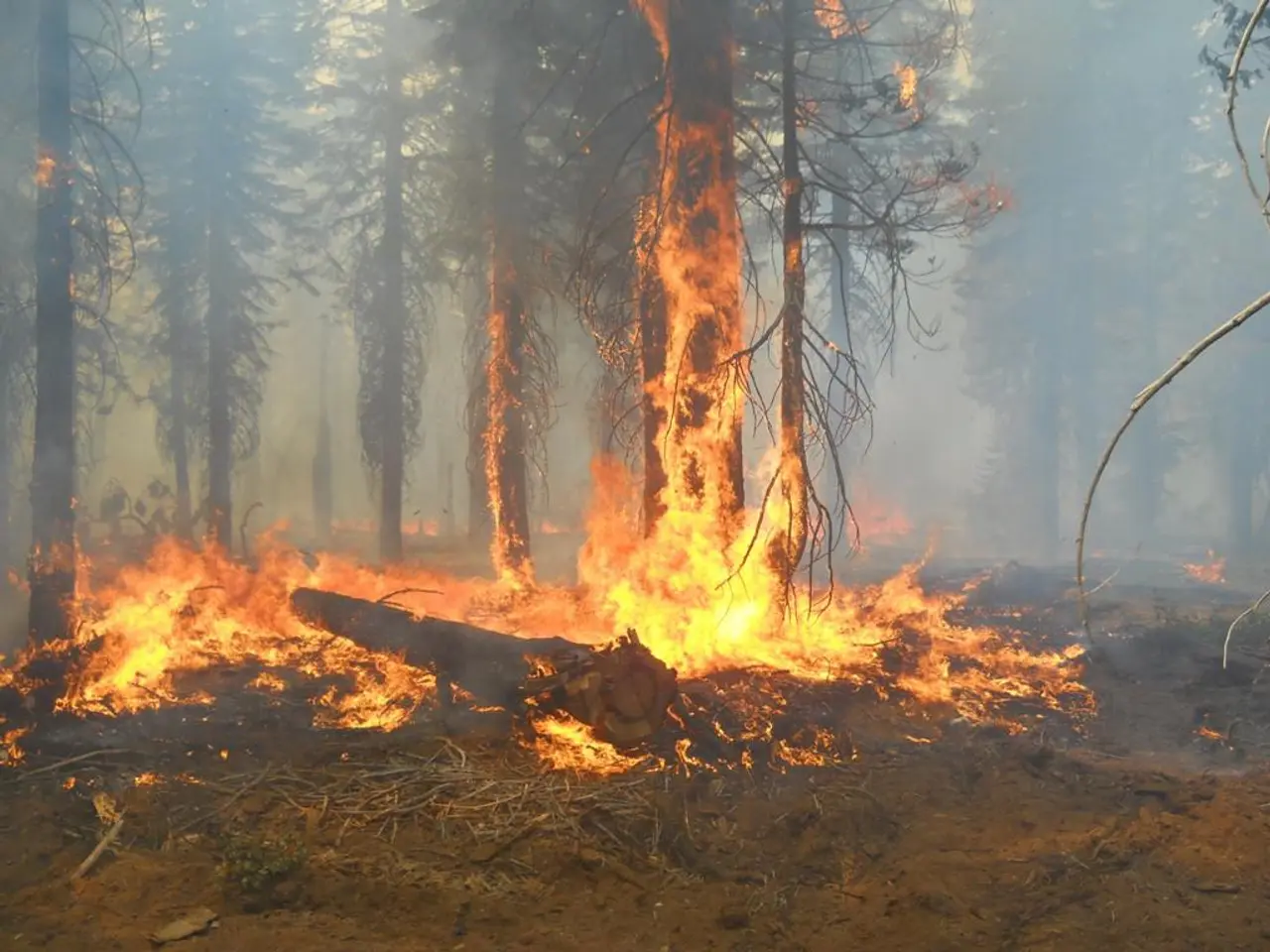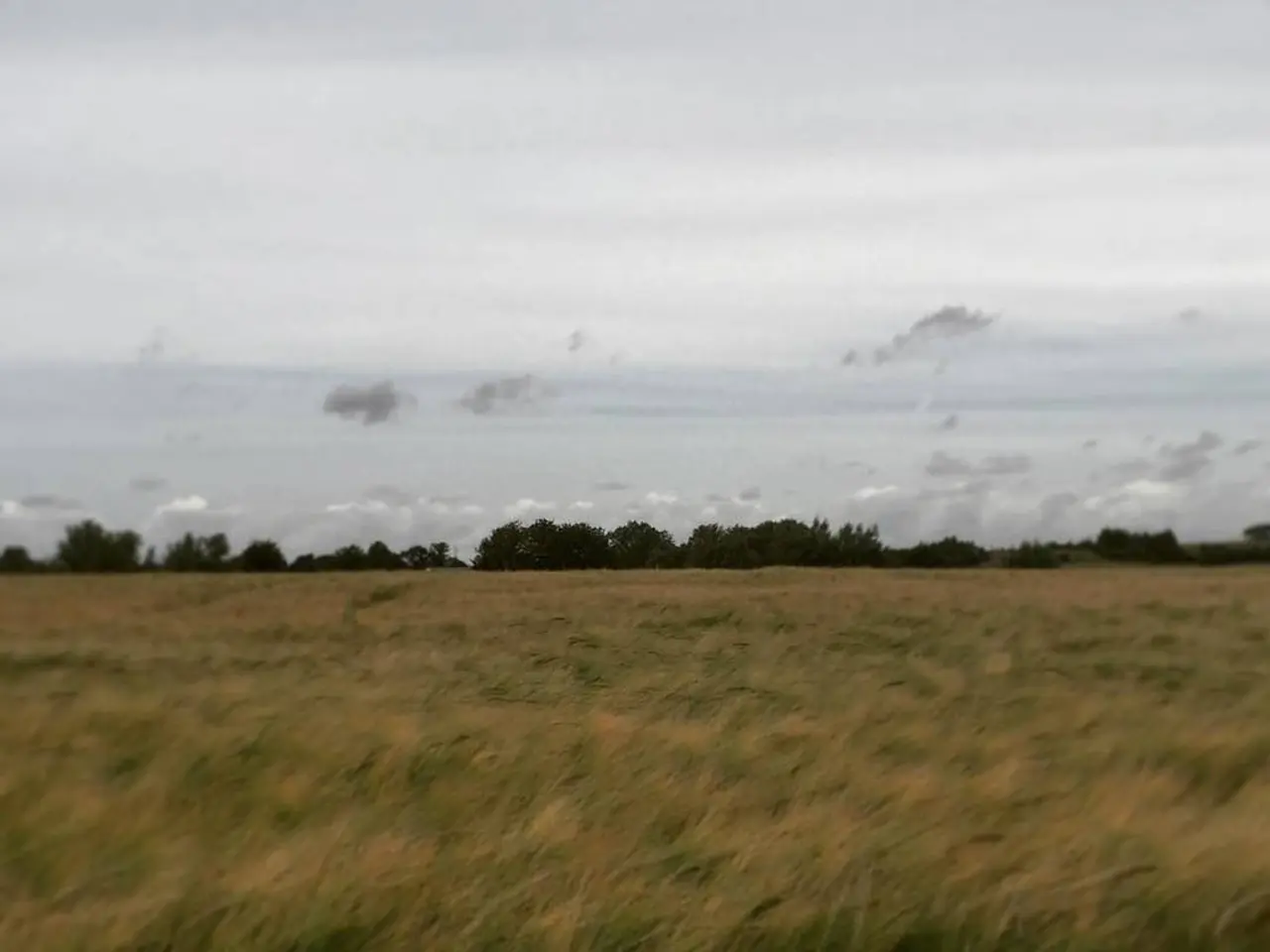Fire in Zerbst entirely controlled and no longer posing a threat. - Fire in Zerbst entirely doused, no longer pose threat
In a relief for the residents of Zerbst, located in the Anhalt-Bitterfeld district of Saxony-Anhalt, Germany, a significant forest fire that had been ravaging the region for some time has been fully extinguished.
Landrat Andy Grabner (CDU) expressed gratitude for the "exceptional" efforts of all personnel involved in the operation. Over 280 personnel worked tirelessly on the ground, with the support of the state police who provided a helicopter, and the Technical Relief Agency (THW) and the German Red Cross (DRK) who also lent their expertise.
The fire did not spread to the ICE track, the federal road from Rodleben to Jüterbog, or the Spitzberg forest area. However, it affected approximately 217 hectares of land, including 78 hectares of forest and 139 hectares of agricultural land.
The state forest administration will now take over the ongoing monitoring of the area to ensure there are no residual hotspots. Local farmers, showing their support, offered tanker trucks to aid in the firefighting efforts, while the nearby village population provided refreshments for the personnel working to extinguish the fire.
The key causes of the fire were a combination of extreme weather conditions and human activity. Prolonged dry spells and high temperatures, coupled with strong winds, created very dry vegetation, making it highly flammable. Human negligence, such as discarded cigarette butts, unattended campfires, or sparks from machinery, is often a common cause in such regions. In some cases, deliberate arson cannot be ruled out until investigations conclude.
The forest in the region, with its high density of resinous trees like pines, and accumulated dry leaves and underbrush, provided ample fuel for the fire. Limited recent rainfall led to drought conditions, and accessibility challenges for firefighting teams due to terrain complicated the operation.
The Anhalt-Bitterfeld district made the announcement about the fire's extinction, bringing a sense of relief to the community. While the aftermath of the fire will require continued vigilance and effort, the successful extinguishing of the fire marks a significant milestone in the region's recovery.
The Commission, with its expertise in environmental-science, has also been consulted on the draft directive regarding the protection of workers from the risks related to exposure to ionizing radiation, given the potential harm posed by the radioactive substances present in the aftermath of such devastating forest fires. As the science of weather plays a crucial role in understanding the factors contributing to these disastrous events, meteorologists could analyze the extreme weather conditions that exacerbated the fire in Zerbst, providing valuable insights for future prevention measures.








